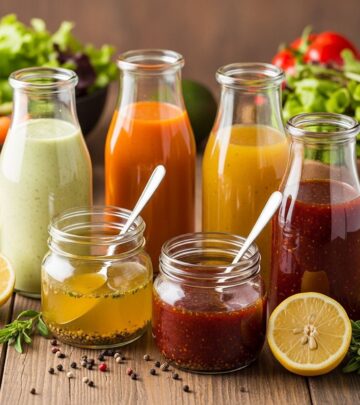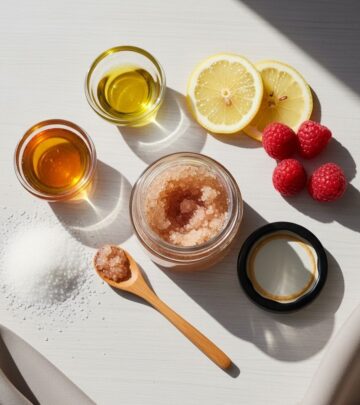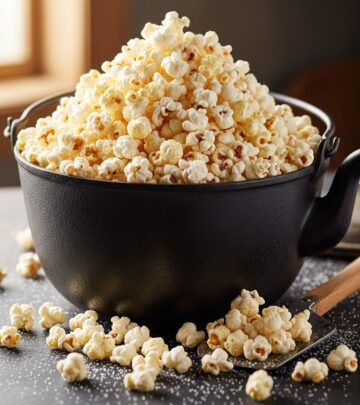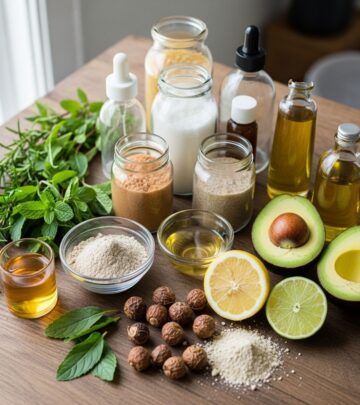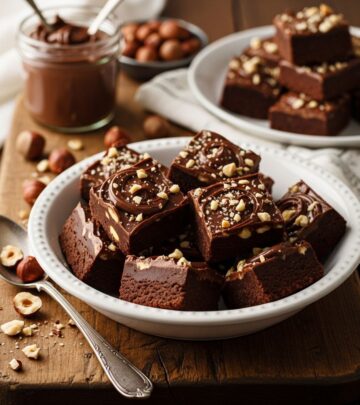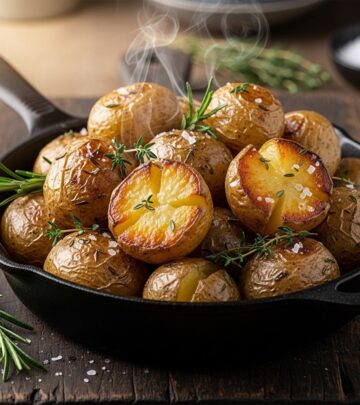How To Boil Eggs: 3 Foolproof Methods For Perfect Results
Master the art of boiling eggs for breakfast, snacks, or salads with foolproof techniques, troubleshooting tips, and expert answers.
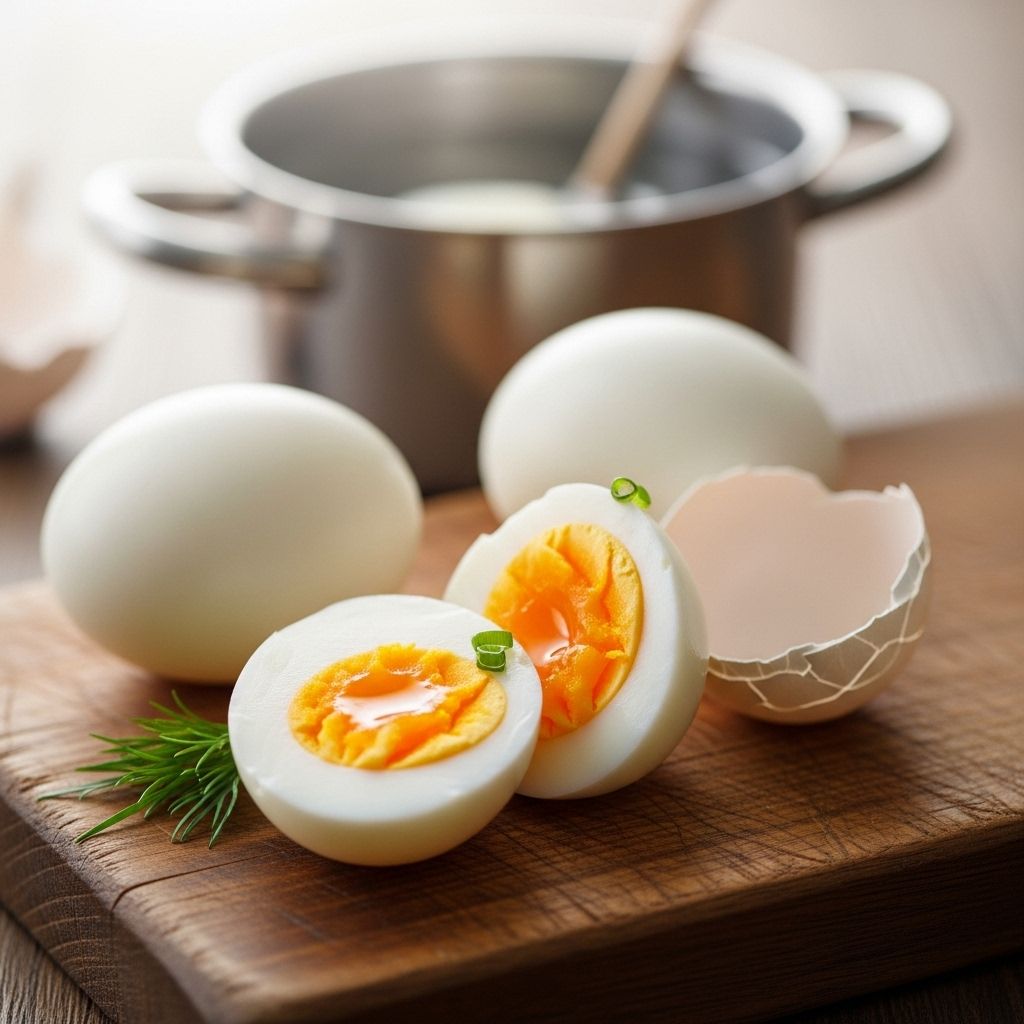
Image: HearthJunction Design Team
How to Boil Eggs: The Ultimate Guide to Perfect Hard and Soft-Boiled Eggs
If you’ve ever struggled to achieve flawless, easy-to-peel boiled eggs, you’re not alone. Boiling eggs is a deceptively simple kitchen task that trips up even experienced cooks. Whether you’re making a quick breakfast, prepping salads, or planning for deviled eggs, this comprehensive guide will take you through every detail of boiling eggs — from water temperature to peelability, and everything in between.
Why Boil Eggs?
Boiled eggs are an all-purpose kitchen staple. They’re packed with protein, naturally portion-controlled, and remarkably versatile. Hard-boiled eggs can be enjoyed as a snack, added to salads, or transformed into deviled eggs, while soft-boiled eggs add a creamy touch to toast or ramen.
Boiled Egg Basics
Before getting started, it’s important to understand the basics:
- Egg Freshness: Slightly older eggs are easier to peel than just-bought eggs. If possible, choose eggs that are 7-10 days old for your hard-boiled eggs.
- Water Temperature: Always start with cold water for consistent cooking.
- Egg Size: Standard cooking times assume large eggs; adjust slightly for medium or extra-large eggs.
Step-by-Step: How to Boil Eggs
Follow these simple steps for batch after batch of perfectly boiled eggs:
- Place Eggs in a Saucepan: Arrange eggs in a single layer at the bottom of a saucepan or pot. This prevents cracking and ensures even cooking.
- Add Cold Water: Cover the eggs with cold water by about an inch. Cold water helps prevent eggs from cracking as the temperature rises gradually.
- Bring to a Boil: Place the pan over medium-high heat. Wait for the water to come to a rolling boil — you’ll see big, consistent bubbles on the surface.
- Turn Off the Heat (for Hard-Boiled): As soon as boiling starts, turn off the heat, cover the pan with a lid, and let the eggs sit, using the residual heat to finish cooking. For soft-boiled eggs, keep the pan at a gentle boil.
- Time Your Eggs: See the timing chart below for specific doneness.
- Cool Quickly: Avoid overcooking by transferring cooked eggs to a bowl of ice water or running them under cold water. This stops the cooking process and makes peeling easier.
- Peel: Tap eggs gently against the counter, then peel under running water. The water helps get under the shell and remove stubborn bits.
How Long to Boil Eggs
Cooking times vary based on the desired doneness:
| Egg Type | Cooking Time (Minutes) | Description |
|---|---|---|
| Soft-Boiled | 6–7 | Firm whites, runny yolks |
| Medium-Boiled | 9–10 | Firm whites, custardy yolks |
| Hard-Boiled | 12–14 | Firm whites, fully set yolks |
Tip: For softer yolks, use the shorter end of the range. For firmer yolks, use the longer time. Altitude, egg size, and freshness can affect outcome, so use these as guidelines and adjust as needed.
Detailed Boiling Methods
Method 1: Classic Hard-Boiled (Steep Method)
- Place eggs in a saucepan; cover with cold water.
- Bring to a simmer over medium-high heat.
- When water begins to boil, turn off heat, cover, and let stand 12–17 minutes (shorter for creamier yolks, longer for fully set yolks).
- Transfer eggs to ice bath; let cool 15–20 minutes.
- Peel and enjoy.
Method 2: Boil-and-Simmer (Traditional)
- Bring water to a boil, add salt and vinegar for easier peeling.
- Gently lower eggs using a spoon.
- Reduce to a low simmer and cook for 9–14 minutes depending on desired doneness.
- Transfer to ice bath; cool completely before peeling.
Method 3: The Steaming Method (for Easy Peeling)
- Add an inch of water to a saucepan and bring to a boil.
- Place eggs in a steaming basket above boiling water.
- Cover and steam for 11–13 minutes (hard-boiled) or 6–7 minutes (soft-boiled).
- Transfer to ice water immediately.
How to Peel Boiled Eggs Easily
Struggling with sticky shells? Use these tricks for effortless peeling:
- Use Older Eggs: Fresh eggs are harder to peel. If eggs are too new, consider steaming — it helps separate the membrane from the shell.
- Add Vinegar or Baking Soda: A teaspoon of vinegar or baking soda in the cooking water can make peeling easier by softening the shell.
- Crack and Roll: Tap the cooled egg gently, then roll it to crack the shell all over before peeling under running water.
Common Boiled Egg Problems (and Fixes)
- Green Ring Around the Yolk: This harmless discoloration is caused by overcooking. Avoid by cooling eggs promptly.
- Rubbery Whites: Eggs cooked too long turn tough. Always use a timer and remove them from heat as directed.
- Hard-to-Peel Shells: Older eggs, proper chilling, and vinegar or baking soda in the water help prevent this.
- Cracked Shells: Bring eggs to room temperature for 10–15 minutes before cooking and avoid rapid temperature changes.
Variations: Soft and Medium-Boiled Eggs
For jammy yolks or soft-boiled eggs perfect for ramen, adjust your timing:
- Soft-Boiled: Simmer for 6–7 minutes. Whites will be set and yolks runny.
- Medium-Boiled: Simmer for 9–10 minutes. Whites are set, yolks are fudge-like or custardy.
Tip: Use a slotted spoon to lower eggs into already boiling water for these methods.
Storage and Food Safety
- Store unpeeled boiled eggs in the fridge for up to a week.
- Peeled eggs should be kept in a sealed container and used within 3–5 days.
- Label eggs with the boiling date to keep track of freshness.
Serving Ideas for Boiled Eggs
- Add to salads (Cobb, Niçoise, potato salad)
- Make deviled eggs for parties and picnics
- Slice onto avocado toast or grain bowls
- Pack for protein-rich snacks on the go
- Use soft-boiled eggs to top ramen, rice bowls, or asparagus
Frequently Asked Questions (FAQs)
How can I tell if an egg is boiled without cracking it?
Spin the egg on a flat surface. Hard-boiled eggs spin smoothly; raw eggs wobble due to their liquid centers.
Can I boil eggs that have already cracked?
Yes, but a little vinegar in the water helps coagulate the egg white quickly, preventing leakage. The result may not be picture-perfect, but it’s safe to eat.
Why are my hard-boiled eggs hard to peel?
Fresh eggs are more difficult to peel. Use older eggs, add vinegar or baking soda to the water, chill in an ice bath, and peel under running water for best results.
Can you overcook a boiled egg?
Yes. Overcooked eggs develop a gray-green ring around the yolk and the whites become rubbery. Use a timer and cool eggs quickly after cooking to prevent this.
Is it better to boil or steam eggs?
Both methods work, but steaming can make eggs easier to peel, especially if you’re using very fresh eggs.
What’s the best way to store boiled eggs?
Store unpeeled eggs in the fridge for up to a week. Peeled eggs can dry out more quickly, so keep them in a sealed container and use within 3–5 days.
Expert Tips for Perfect Boiled Eggs Every Time
- Don’t crowd the pan — arrange eggs in a single layer.
- Use a slotted spoon to move eggs gently and avoid cracks.
- Set a timer as soon as you cover the pan to prevent overcooking.
- If preparing a large batch, cool eggs in batches so they stop cooking promptly.
- Experiment with white or brown eggs, but remember: color doesn’t affect flavor or peeling.
Summary Table: Egg Boiling Methods at a Glance
| Method | Action | Best For |
|---|---|---|
| Steep Method | Turn off heat, let eggs sit in hot water | Consistent hard-boiled eggs; minimal fuss |
| Boil-and-Simmer | Simmer eggs, then ice bath | Soft to hard-boiled eggs, easy adjustment |
| Steaming | Steam in basket over boiling water | Easy peeling, especially for fresh eggs |
Final Thoughts
Mastering boiled eggs unlocks countless possibilities in the kitchen, from quick snacks to elegant salads and crowd-pleasing appetizers. Remember, every stove and pot is a bit different, so don’t hesitate to fine-tune timing for your perfect egg. With these simple steps and expert tips, you’re just minutes away from your ideal boiled egg every time.
References
- https://www.allrecipes.com/recipe/235595/how-to-make-perfect-hard-boiled-eggs/
- https://www.allrecipes.com/article/how-to-boil-an-egg/
- https://www.allrecipes.com/recipe/213737/kens-perfect-hard-boiled-egg-and-i-mean-perfect/
- https://www.allrecipes.com/recipe/273133/perfect-hard-boiled-eggs/
- https://www.allrecipes.com/recipe/255010/soft-hard-boiled-eggs/
Read full bio of Srija Burman

